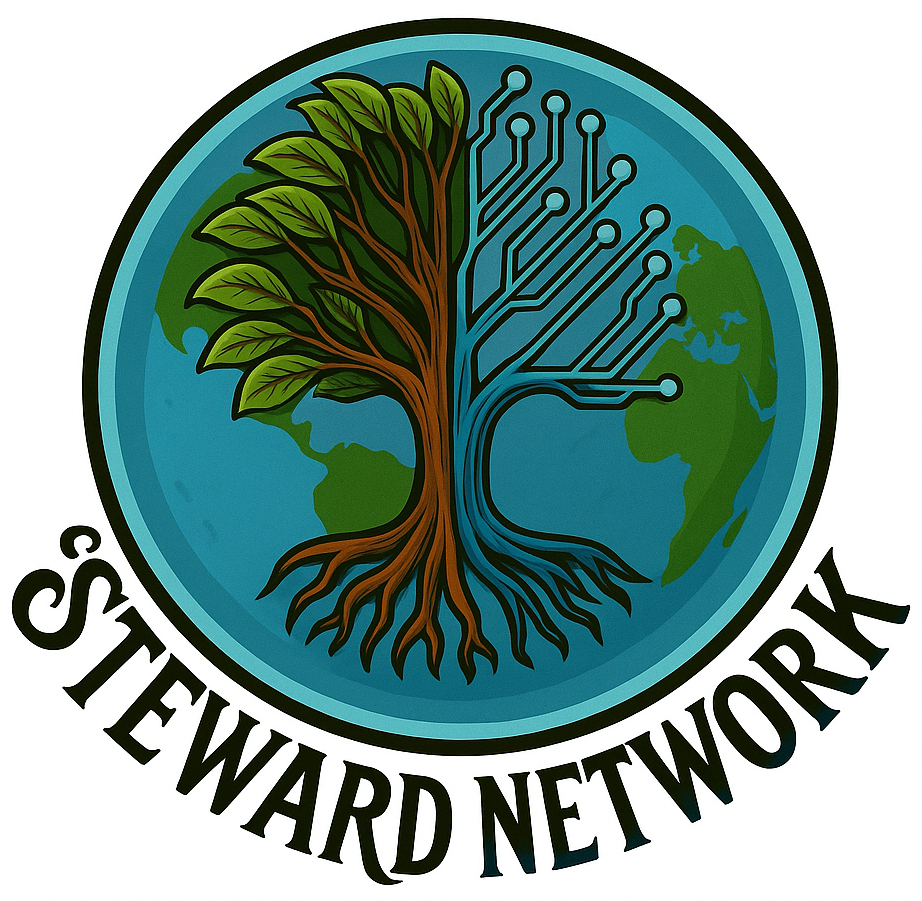📖 Glossary
☀️ Glossary of Essential Terms
This glossary defines key terms as used within The Steward Network. Many definitions include icons representing the Foundational Factors (FFs) or major risk categories to help readers quickly identify relevant system elements.
AI Alignment 🤖 The process of ensuring that artificial intelligence systems reliably pursue goals aligned with human values and safety. In this document, we distinguish between narrow AI alignment (task-specific safety) and Parallel Alignment, which refers to AI systems co-evolving with resilient human systems.
Black Swan Events 🦢 Rare, unpredictable events with extreme impact. Their probability often seems obvious in hindsight, but their surprise factor can cause severe systemic shock.
Cascading Failure A situation in which failure in one part of a system triggers a series of failures in other parts. Relevant to both infrastructure (🔌) and institutional trust (🤝/🏛️).
Constructive Compassionate Communication (CCC) ❤️💬 The Steward Network’s core communication methodology. CCC fosters empathy, shared understanding, and respectful dialogue—especially under conditions of stress, disagreement, or complexity. It supports FFs like Social Trust 🤝, Mental Wellbeing 🧠, and Information Integrity 📀.
Decentralized Resilience 🔌/🤝 Resilience strategies that do not rely solely on centralized control. Instead, they empower distributed groups to respond adaptively, maintain critical functions, and build back stronger.
Distributed Legitimacy 🤝/🏛️ A condition in which decision-making authority and credibility are recognized across a wide range of actors, not concentrated in a single institution. Crucial for resilient governance.
Equity = Fairness in access to resources, opportunity, and protection. This includes correcting systemic injustices and addressing root causes of vulnerability. See also: Foundational Equity and Justice.
Existential Risk (X-Risk) 💀 A threat that could permanently curtail humanity’s potential or cause irreversible human extinction. Primary X-Risks include Climate Change 🔥, AI & Cyberinsecurity 🤖, Ecology Collapse 🌍, Nuclear Conflict ☢️, Pandemics ☣️, and Black Swans 🦢.
Feedback Loop (Positive/Negative) A system dynamic where outputs influence inputs. Positive loops amplify trends (e.g., trust → cooperation → better governance), while negative loops reinforce decline (e.g., misinformation → distrust → governance paralysis).
Foundational Equity and Justice =/🏛️ The principle that long-term resilience depends on fairness, redress of harm, and safe inclusion. Includes defending vulnerable populations while adapting to diverse legal and cultural contexts.
Foundational Factors (🧬) The seven core capacities upon which societal resilience depends:
- 🧠 Mental Health & Collective Wellbeing
- 🔎 Strategic Literacy & Risk Perception
- 🤝 Social Trust & Cooperation
- 🏩 Governance and Institutional Capacity
- 📀 Informational Quality and Focus
- = Economic Stability & Equity
- 🔌 Infrastructure Resilience & Security
Foundational Fragility A state where weaknesses across FFs reinforce one another, making societies highly vulnerable to shock and incapable of adaptive recovery.
Foundational Resilience The condition in which all FFs are robust and interlinked, enabling societies to anticipate, absorb, and adapt to complex shocks while improving wellbeing.
Guidance Forum 🤝/🔎/🏛️ A flexible support structure proposed in Chapter 9 to help Scouts (and other groups) find aligned opportunities, resolve disputes, and connect with guides/mentors. Forums help balance autonomy with coordination.
Leverage Points 🔎/= Strategic places in a system where small changes can trigger large, cascading impacts. Often tied to key FF nexuses (e.g., trust/info/governance).
Parallel AI Alignment 🤖/🏛️ A broader framing of alignment in which human institutions and social systems are co-developed alongside AI capabilities. Recognizes that safety is not just a technical problem, but a social and governance challenge.
Polycrisis 🌍/🤖/🔥 A situation where multiple global crises interact in ways that amplify overall harm. Unlike isolated shocks, polycrises emerge from system-level feedback loops, often overwhelming response capacity.
Resilience Dividend 🔄 The concept that investments in resilience (infrastructure, trust, foresight) not only reduce harm from crises but also produce long-term co-benefits like innovation, equity, and public trust.
Scouts (Steward Scouts) 🤝/🔎/🧠 Local members of the Steward Network focused on learning, trust-building, collaboration, and regeneration. Scouts operate in diverse local contexts, supported by peer groups, classes, and guidance structures. They are grassroots agents of resilience.
Steward Network ⭐ An evolving global initiative focused on regenerating the core capacities humanity needs to survive and flourish long term. Guided by shared principles and built through decentralized collaboration.
Systemic Fragility 🔌/📀/= The condition where interconnected weaknesses (in governance, trust, infrastructure, etc.) increase the likelihood that shocks will cascade into major failures.
Tipping Point ⚠️ A threshold where incremental change triggers sudden, often irreversible transformation in a system. Can be negative (e.g., ice sheet collapse) or positive (e.g., a global shift toward clean energy or trustworthy AI norms).
Virtuous Cycle 🔁 A reinforcing loop where improvements in one area (e.g., transparency) support gains in others (e.g., trust, governance, wellbeing), creating accelerating benefits across the system.
